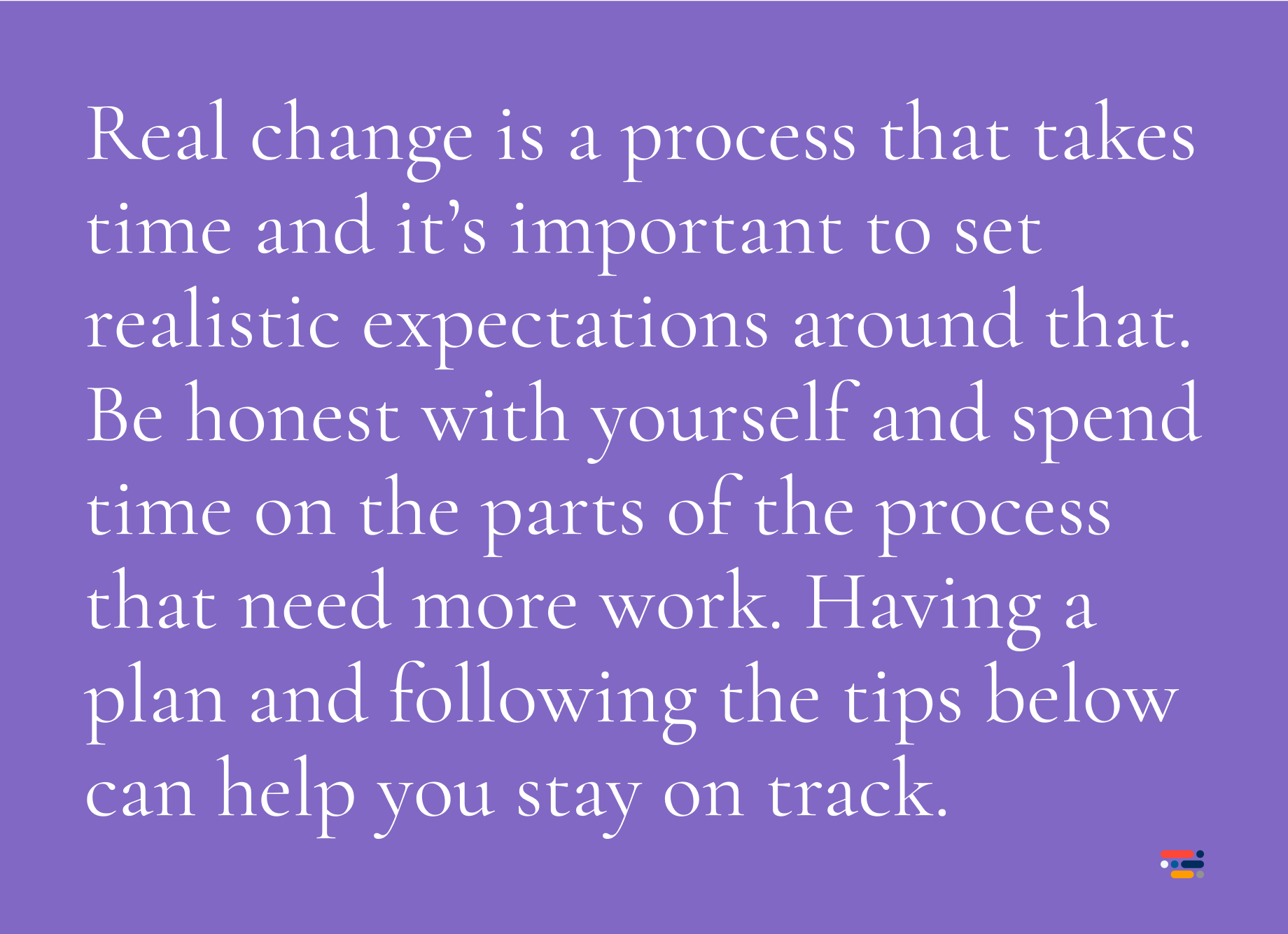We use cookies to enhance your browsing experience and analyze the performance of our website. By clicking Continue, you agree to the use of cookies. For more information, please see our Privacy Policy or update your Cookie Preferences.


Are you ready to make lasting changes this New Year? Even if you're reading this in June, now's the time! While many set ambitious resolutions, it's common to struggle with follow-through or even revert to old habits. If you genuinely want to see growth in your health, career, relationships, finances, and hobbies, you're not alone. In this article, we'll explore practical tips to help you turn your resolutions into sustainable changes. Let's dive in!
Understanding the science and psychology of behavior change is important for lasting changes. According to author and behavior change expert James Clear, "The process of behavior change always starts with awareness. You need to be aware of your habits before you can change them. Pointing-and-Calling raises your level of awareness from a nonconscious habit to a more conscious level by verbalizing your actions."
Once you have awareness, it's time to do the work. Financial guru Dave Ramsey states, "Winning at money is 80 percent behavior and 20 percent head knowledge. What to do isn't the problem; doing it is. Most of us know what to do, but we just don't do it." Will power and motivation can wane, so how are you supposed to keep working towards your goals when you just don't feel like it?

What is the long-term outcome you are hoping to achieve and why is it important to you? Now visualize what this will look like. How will you feel? Maybe you want to live healthy into your 90s on no medications and fully independent. Or maybe you want to semi-retire at 45 and be financially sound to have more time to spend with family and on projects. You might have a mental image of this future benefit. Or maybe you want something more tangible to look at for inspiration, like a vision board. Keep this vision as your motivational reminder throughout your transformation.
Vague resolutions like "get fit" or "be happier" often lead to confusion and lack of direction. Instead, try to set clear, specific goals. SMART goals are Specific, Measurable, Achievable, Relevant, and Time-bound. For example, instead of saying, "I want to exercise more," commit to "I will go to the gym three times a week." SMART goals provide a roadmap for success, making it easier to track your progress.
Large goals can feel overwhelming, which is why breaking them down into smaller, manageable steps is essential. If your goal is to read 24 books this year, aim to read two books a month. By focusing on smaller milestones, you'll feel a sense of accomplishment along the way, which can motivate you to keep going.
Once you've defined your goals, outline a concrete plan to achieve them. Determine what actions you need to take and when. Consider using tools like calendars or apps to schedule your tasks. The more organized you are, the easier it will be to stick to your resolutions.
Share your goals with friends or family who can support and encourage you. Having an accountability partner can make a significant difference, as you'll be more likely to stay committed when someone else is cheering you on. Consider joining groups or online communities with similar goals for additional motivation. Hire a counselor, therapist, or life coach who will help with practical goal setting and overcoming mental obstacles to behavior change.

Monitoring your progress helps you stay focused and motivated. Keep a journal, use an app, or create a chart to track your achievements. Celebrate small victories along the way to reinforce your commitment and remind yourself of how far you've come. Pick a day of the week to post your weekly wins.
Many people struggle with an all-or-nothing mentality: when their plans go awry, they often throw in the towel. Life is unpredictable, and sometimes your goals may need to adapt. If you encounter obstacles, don't be too hard on yourself. Instead, reassess your plan and make adjustments as needed. Flexibility allows you to stay on track without feeling discouraged.
Stressful times can lead us to make choices that hinder progress toward our goals. It's important to notice when you're stressed and what triggers those feelings. While we may not be able to change our stressors, we can control how we respond to them. Building stress resilience is like strengthening a muscle; it takes consistent effort. Consider practices like deep breathing, meditation, yoga, or spending time in nature to help manage stress. This is also a great time reach out to your support system for help.
Change is challenging, and setbacks are a natural part of the process. When things don't go as planned, practice self-compassion. Acknowledge your feelings, learn from the experience, and refocus on your goals without judgment. Remember, it's about progress, not perfection. If you're unfamiliar with self-compassion, check out the work of Dr. Kristin Neff.
At the end of the year (or week, or month), take time to reflect on your journey. What worked well? What didn't? Use these insights to revise your approach for the next year. Continuous reflection ensures that you're always evolving and adapting your resolutions to better fit your life.
This New Year, instead of setting resolutions that fizzle out, commit to creating lasting change. By setting specific goals, breaking them down into manageable steps, and building a support system, you'll be well on your way to making your aspirations a reality. Remember, the journey to change is just as important as the destination embrace it and enjoy the process! Here's to a transformative year ahead!
Book: Atomic Habits By James Clear
Website: Stages of Change Model by Loma Linda University School of Medicine
This article is meant for educational purposes only and is not meant to be misconstrued as medical diagnosis or treatment advice.